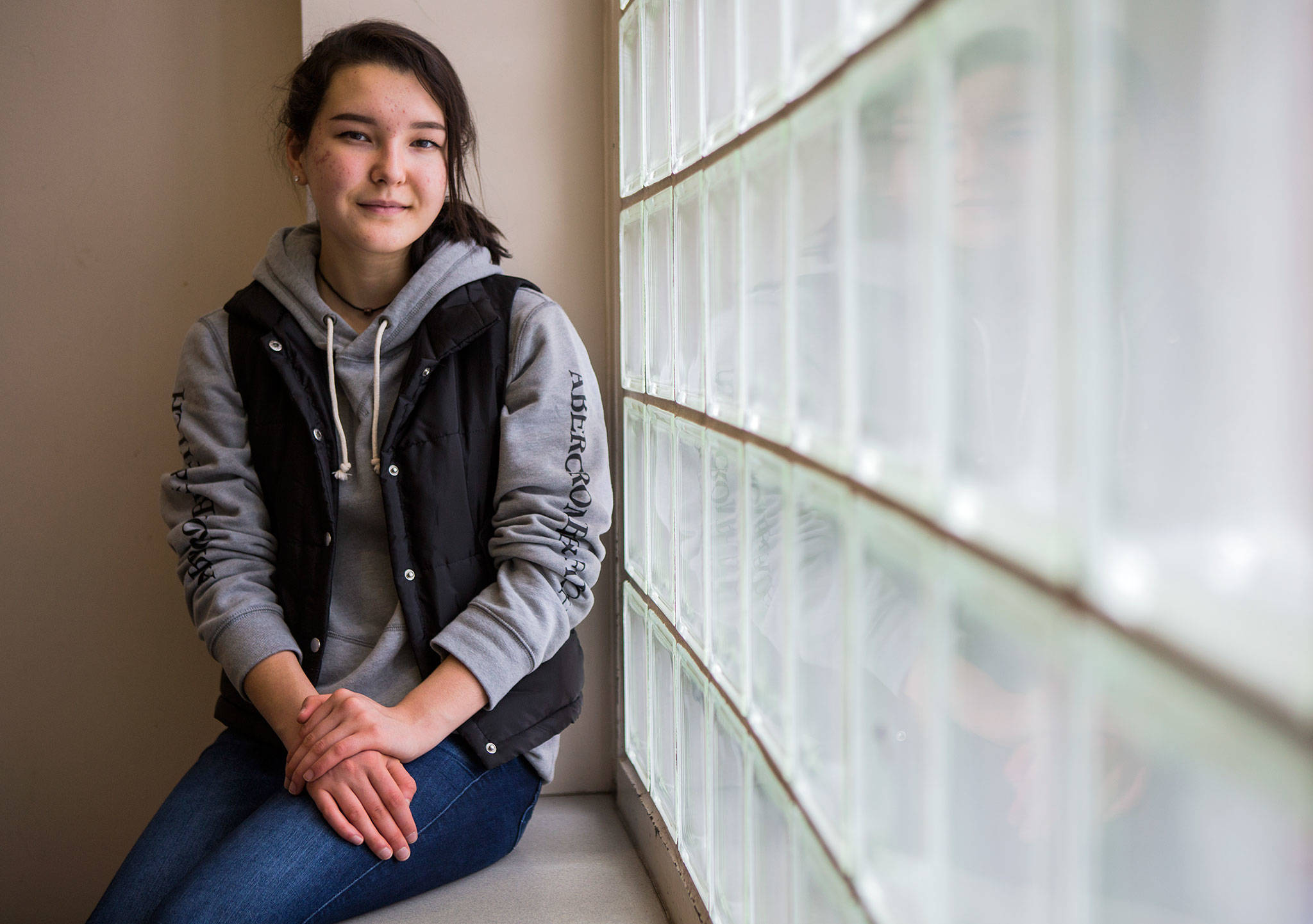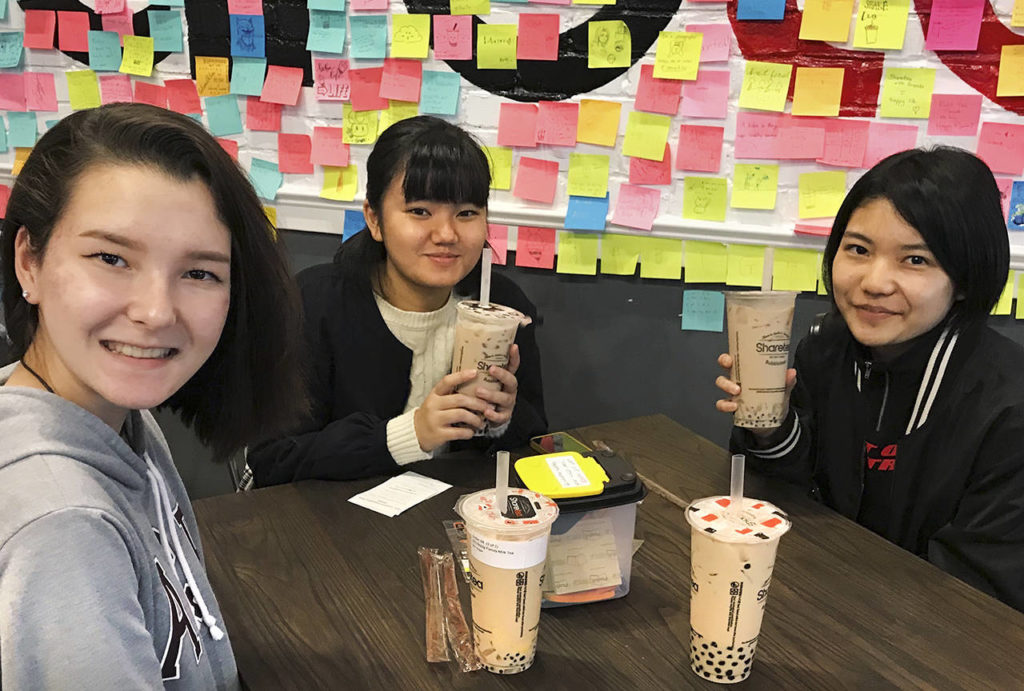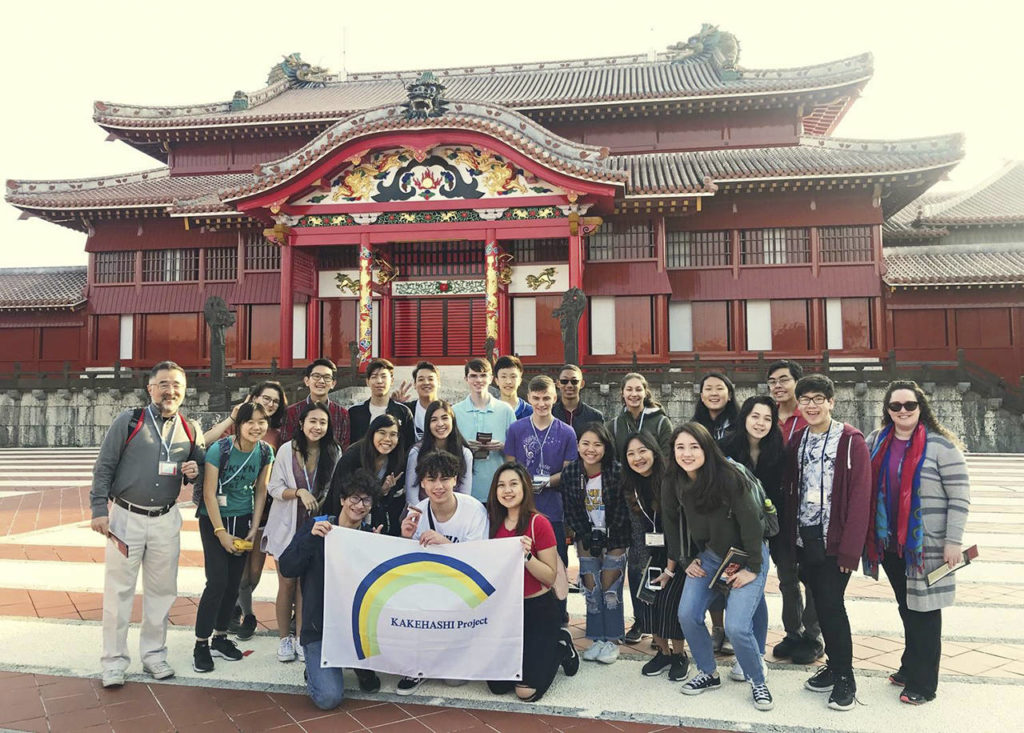MUKILTEO — Margaret Schroeder, 17, is a junior at Kamiak High School. She and 26 other students participated in an exchange program, the Kakehashi Project, hosted by the Japanese government. In December, they traveled to Tokyo and Okinawa.
Margaret plans to go to medical school.
Question: Why study Japanese?
Answer: My mom’s side of the family lives in Japan. I am half-Japanese, my other half being German-American. I feel influenced to study Japanese, not only because it’s a part of my culture but also because my grandma doesn’t speak that much English, and I really want to be able to communicate with her better. Since I was born in Japan and lived there for the first few years of my life, I also already know a little bit of Japanese, just like the baby words of course.
Q: Talk about your trip to Japan.
A: In early November, 23 students from Naha High School in Okinawa came to Mukilteo. I had the privilege of hosting two of them, Seira Higa and Shinon Takara. This was one of the best things I’ve ever convinced my parents to let me do, because it really made being hosted by Shinon, when we went to Okinawa, all the more special, since we already knew each other.
We visited both Tokyo and Naha, a city in Okinawa. In the two cities, we went to a variety of locations that ranged from beautiful cultural displays, like Shuri Castle and Asakusa, to more thought-provoking ones, like the Okinawa Peace Memorial.
Q: What were your expectations?
A: I already knew what Tokyo would be like since I was born in Yokohama, which is a nearby city, and go back to visit my grandma and aunt frequently. I didn’t know too much about Okinawa.
A few of my classmates had thought that Japan would be entirely different from the U.S. with its high-tech toilets and extreme fashion. On top of that, they also expected Japanese students to place their studies as their No. 1 priority. When they arrived though, they realized that although our two countries do hold their differences, there were also a lot of similarities and things that we could learn from them.
Q: What are some observations?
A: Despite the lack of trash cans on the street, Japan’s streets were spotless. It was such a shift from the littered streets of Mukilteo and Seattle, and it implied a whole lot about the culture we were visiting — they were a people who appreciate a sense of cleanliness and appearance.
It was also uncommon to see people walking around in just sweats or pajamas, something that quite a few of our students were guilty of. As for what was different from my classmates’ predictions, Japan wasn’t as extremely vibrant or crazy as they thought. There’s a lot more to Japan and Japanese culture than what the commercials that go viral on YouTube and anime suggest.
A lot of people realized that students in Japan are just like any students. Although they do take their education seriously, they also possess humanistic qualities, such as wanting to spend time with friends and participate in extracurriculars and sometimes falling asleep in class and forgetting homework.
Q: What are misconceptions Americans have?
A: When Americans think of Japan, often times images of ramen, anime, cars, and so on pop up.
With the Kakehashi Project when we first arrived we were handed a piece of paper and asked to draw what we thought represented Japan. We were not the only school there, a school from Hawaii was also participating at the time, and yet I remember seeing similar images of karate, cars, anime, cherry blossoms and even the Japanese flag drawn on everyone’s paper. Although most of these symbols and ideas are relevant to Japanese culture, the lack of variety showed just how little we, as Americans, knew. Japanese culture consists of much more than the products that catch on in America.
I think the common misconception was and is that Japan is “exotic” and therefore only consists of the elements and stereotypes that make it “stand out.”
Q: How is life different for Japanese students?
A: The level and type of course work and classes that they do. I went to economics with Shinon, and the topics that they covered were very complex in comparison to what I’ve experienced in American classrooms. Their school seemed to offer a greater variety of subjects on a higher level as well.
Q: What is the most amazing thing you learned?
A: A common aspect of Japanese households is that they have a sort of altar that is dedicated to their ancestors. Pictures of family members who have passed are usually put on display. Okinawan households on the other hand, though they do have similar altars, usually do not display pictures. Instead they have stones that are dedicated to them. On top of that, Okinawa’s food is actually quite different; they add their own twist to a lot of things, as can be seen with Okinawa soba.
Okinawa is also unique in the fact that it has a lot of other cultures integrated and living in it. In one area of Naha, there are two stone statues that were given by the first Chinese immigrants, and while we were exploring Naha, I heard a lot of other languages being spoken as well. The overall climate is different from Tokyo. Naha’s temperatures and sunsets reminded me a lot of Oahu, Hawaii, which at the time was a nice shift from cold and rainy Mukilteo.
Q: Did you ever get lost?
A: The Kakehashi Project supervisors made sure that we had the right resources to direct ourselves and make sure that such a thing was prevented.
Q: What are three things you brought back?
A: A ton of food, which ranged from all of the “omiyage” that my host family got me, to the snacks that my grandma brought when she stopped by to see me, to the food that I bought for myself, my friends, and my family. On the way back, I think about half my suitcase was filled with food. One item includes a confectionery that Okinawa is actually famous for called chinsuko, a biscuit that is similar to shortbread cookies. Another item I brought back is a sesame-and-custard-filled “egg” that my friend and I both bought because we really liked its aesthetic.
Andrea Brown: abrown@heraldnet.com; 425-339-3443. Twitter @reporterbrown.
Talk to us
> Give us your news tips.
> Send us a letter to the editor.
> More Herald contact information.




























